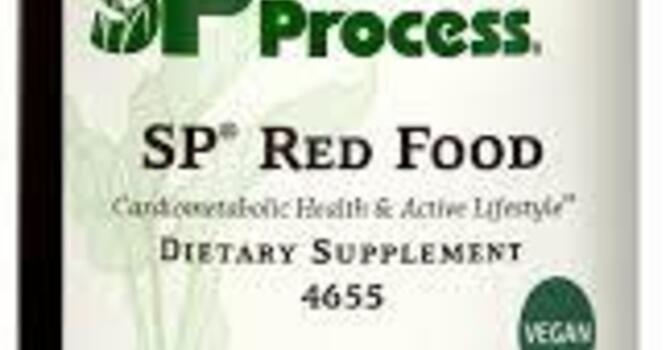Introduction: The Surprising Link Between Skin, Digestion, and Immunity
Many people struggle with seemingly unrelated issues like allergies, acne, and acid reflux. But what if these symptoms had a common root cause? According to Traditional Chinese Medicine (TCM) and modern integrative health perspectives, the gut plays a central role in immune and inflammatory responses throughout the body. This article explores how digestive health influences a range of symptoms—and how acupuncture and natural therapies can help restore balance.
The Gut Connection: Foundation of Digestive and Immune Health
Your digestive tract does more than break down food—it also serves as a critical immune barrier. When gut function becomes impaired (due to poor diet, chronic stress, or food sensitivities), it may allow unwanted compounds to pass into the bloodstream. This "leaky gut" can trigger systemic inflammation, allergic reactions, skin breakouts, and fatigue.
Acid reflux is often one of the earliest signs of compromised digestion. Contrary to popular belief, many people with reflux have low stomach acid, which prevents the lower esophageal sphincter from closing properly. The result: stomach contents flow backward, causing discomfort and further disrupting digestion.
Acupuncture for Acid Reflux and Gut Health
Acupuncture helps stimulate the vagus nerve and parasympathetic nervous system, promoting healthy digestive secretions and motility. By regulating stomach acid production and calming inflammation, acupuncture supports the gut's ability to break down and absorb nutrients properly. Over time, this can help reduce acid reflux symptoms without the need for long-term antacid use.
The Gut–Allergy Connection: How a Compromised Barrier Triggers Immune Reactions
When food particles or microbial toxins pass through a damaged gut barrier, the immune system kicks into overdrive. This hypersensitivity may lead to classic allergy symptoms: runny nose, itchy eyes, sinus congestion, and skin rashes. Over time, this immune response becomes chronic, leading to persistent seasonal allergies or food intolerances.
Acupuncture helps regulate the immune response by calming histamine release and reducing systemic inflammation. When combined with dietary changes and gut-healing herbs, acupuncture can dramatically reduce allergic symptoms and improve resilience.
Acne and Skin Issues: Signs of Internal Imbalance
Acne is often a reflection of internal inflammation and toxin buildup—particularly when the liver, kidneys, or gut are unable to eliminate waste efficiently. In TCM, the skin is considered a "third kidney"—an organ of detoxification. When the gut fails to eliminate toxins properly, the skin takes over, resulting in clogged pores, inflammation, and acne.
By promoting detoxification through improved digestion, acupuncture can help reduce skin flare-ups. Points that support liver function, intestinal motility, and stress reduction are commonly used to address chronic skin issues.
Top Tips for Restoring Digestive Health
-
Avoid Processed Foods – Refined foods disrupt the gut microbiome and lead to fermentation and irritation.
-
Eat Mindfully – Take time to enjoy meals, allowing digestive enzymes and stomach acid to be properly activated.
-
Track Food Sensitivities – Use a food journal or try an elimination diet to identify triggers.
-
Use Herbs to Support the Gut Barrier – There are a few excellent herbal medicines that help restore gut integrity and stomach acid secretion:
A. Deglycyrrhizinated Licorice (Glycyrrhiza glabra)
Licorice is a soothing demulcent that calms inflammation in the gut lining. It supports adrenal function and is available as teas, tinctures, and capsules. Look for the "deglycyrrhizinated" form.B. Meadowsweet (Filipendula ulmaria)
Known as the "godmother of digestion," Meadowsweet supports stomach acid production and eases inflamed mucosal tissue. It's best taken as a tincture or capsule.C. Fennel (Foeniculum vulgare)
Fennel boosts digestive enzyme output, reducing gut irritation and bloating. It can be consumed in food or as a supplement.D. Ginger (Zingiber officinale)
Ginger alleviates indigestion and improves gut motility. It stimulates digestive enzymes and can be consumed as tea, in meals, or in supplement form.E. Chamomile (Matricaria chamomilla)
Chamomile soothes both the gut and nervous system, relaxing intestinal muscles and easing cramping. It’s most effective as a strong tea after meals or before bed.
Conclusion: A Holistic Approach to Wellness
The gut is a complex organ system that relies on the support of other organs to do its job properly. When we eat a poor diet high in processed foods, experience long-term stress, have undiagnosed food allergies, or frequently eat on the run, it can lead to low stomach acid, gut inflammation, and the passage of unwanted compounds into the bloodstream.
These compounds often trigger immune reactions, manifesting as allergies, acne, fatigue, and skin rashes. Supporting the gut with acupuncture, herbs, and mindful eating can reduce these symptoms and restore overall health.
References:
-
Bahmani, M. et al. (2014). Asian Pacific Journal of Tropical Disease.
-
Samardžić, S. et al. (2018). Journal of Ethnopharmacology.
-
Vasudevan, K. et al. (2000). Indian Journal of Gastroenterology.
-
Platel, K. & Srinivasan, K. (1996). Int J Food Sci Nutr.
-
Yamahara, J. et al. (1990). Chem & Pharmaceutical Bulletin.
-
Mehmood, M. H. et al. (2015). BMC Complementary and Alternative Medicine.
Keywords: acupuncture for allergies, acid reflux and acupuncture, gut health and immunity, acupuncture for digestive health, holistic treatment for acid reflux, Chinese medicine for allergies, natural gut healing

Ted Ray
Contact Me



